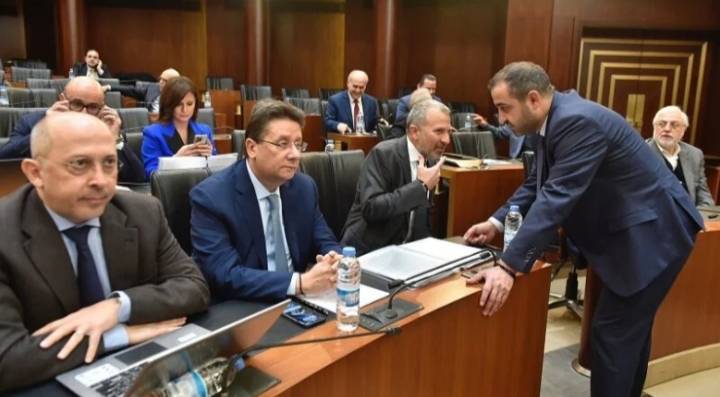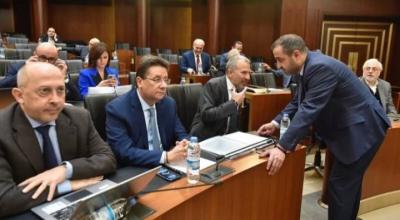A new scene unfolded in the parliament yesterday, with the withdrawal of the three Christian parliamentary blocs: "Strong Lebanon," "The Strong Republic," and "The Lebanese Forces," along with a number of Christian MPs, from the joint parliamentary committee meeting, following the controversy surrounding the bill prepared by the government to import Iraqi fuel, as it did not gain the signatures of all ministers. While some viewed the government's bill as unconstitutional and its progression as exceeding powers, others considered the withdrawal as an additional form of obstruction within a political landscape already burdened by paralysis, marking a sectarian alignment since all withdrawing members were Christians, which does not serve the country during this sensitive period, amidst a rise in sectarian rhetoric.
It is clear that the Free Patriotic Movement is continuing its battle against the caretaker government and its leader Najib Mikati, and the withdrawal from the session aimed to increase pressure in this context, additionally leveraging this obstruction as a tool in the battle for the presidency. Meanwhile, the Lebanese Forces and the Kataeb party provided a justification that was more "constitutional" than political, linking it to pressures for completing the presidential election.
MP Michel Moussa from the "Development and Liberation" bloc pointed out that "the objection by the 'Strong Lebanon' bloc to the bill and the withdrawal from the joint committee session align with the trajectory of objection to governmental sessions." In a statement to "Anbaa" electronic newspaper, Moussa emphasized that "the interests of citizens are a priority, and it is essential for the government to continue its work within its limited scope, supported by the parliament and its committees in necessary legislation, because it is not possible to impede authorities until a president is elected, a process that may take time. We call for the prompt resolution of the presidential election."
While the matter has taken a sectarian turn, Moussa noted that "the context is political, but the scene is unhealthy in any case, and it is not customary for the parliament to experience such division," revealing that "communication is ongoing with everyone to build upon what is necessary regarding upcoming committee sessions, but no one has an interest in obstructing these meetings."
On the other hand, while some saw a rapprochement between the Forces and Aoun in what happened, as if there were an agreement between the two sides, MP Ghada Ayoub from the "Strong Republic" bloc denied the existence of any agreement between the Lebanese Forces and the Free Patriotic Movement, affirming that "what happened was neither planned nor systematic, and the withdrawal was not coordinated with other blocs, nor was it a Christian step against Muslims as portrayed."
In her conversation with "Anbaa" electronic newspaper, Ayoub explained the reasoning behind the Lebanese Forces' stance, highlighting that "the constitution transfers the powers of the president after their term ends to the government as a whole, and the bill submitted could secure only a few signatures, which raised a constitutional debate in the session, and due to this constitutional tug-of-war, we withdrew to avoid delving into it."
Ayoub stressed that "the position does not encompass all sessions of the joint parliamentary committees, and the 'Strong Republic' will continue to attend sessions, but according to constitutional principles, either bills that were not addressed before President Michel Aoun ended his term must be presented, or bills gathering all ministers' signatures."
In conclusion, although the "constitutional" debate is present in most activities of the official authorities given the current reality, addressing citizens' essential issues is critical, as living conditions continue to deteriorate daily, and citizens are no longer concerned except with securing their basics.




